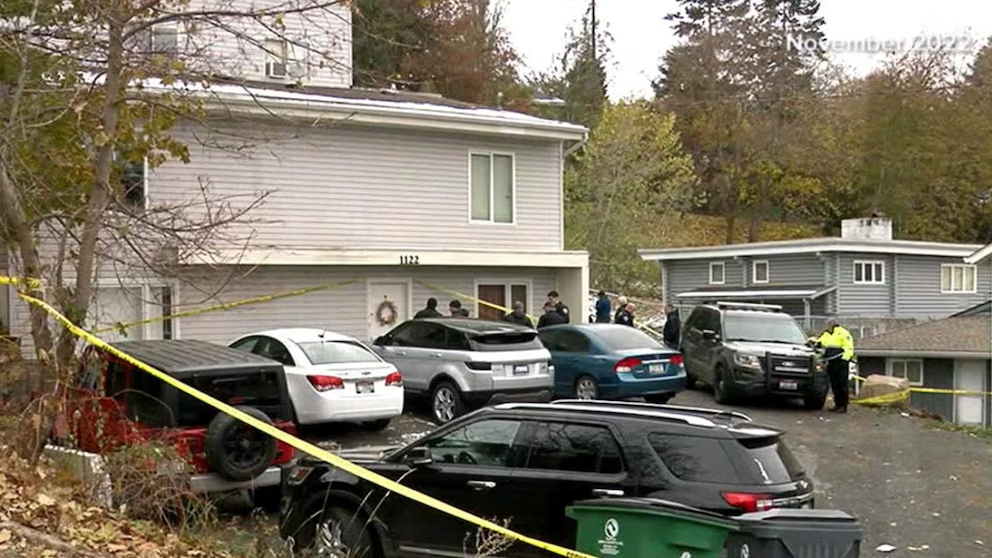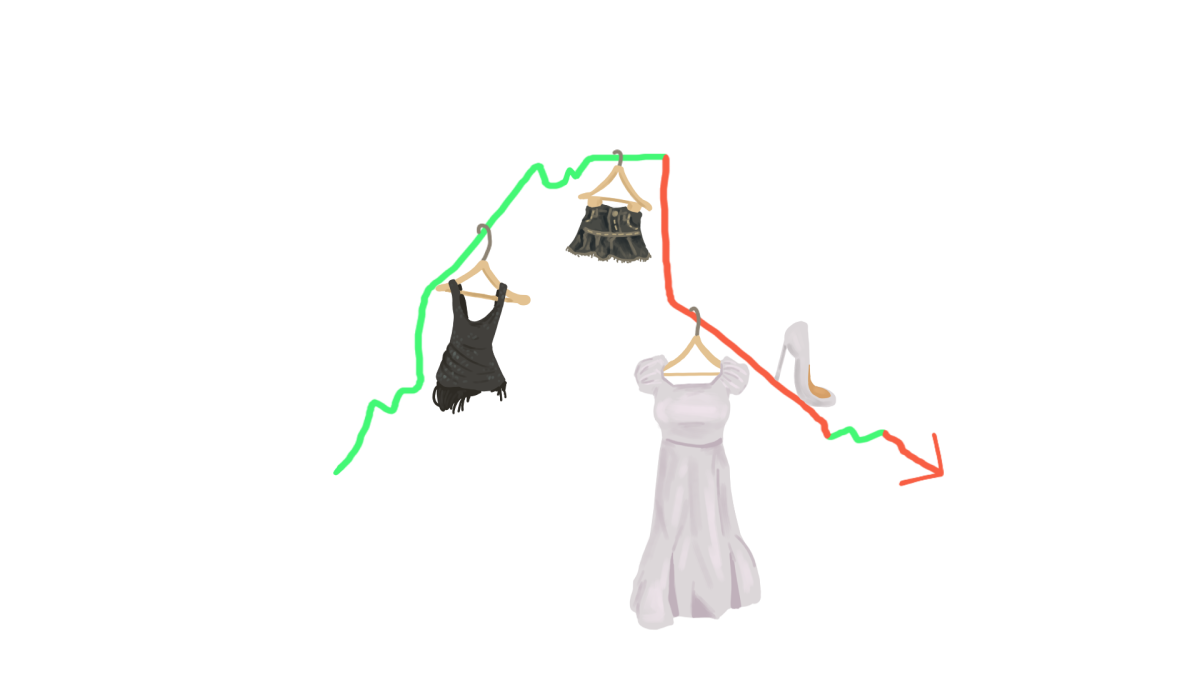As the FHS class of 2025 prepares to walk the stage at the graduation ceremony on Thursday, June 5, a familiar frustration resurfaces: the school’s ban on decorated graduation caps.
Unlike their peers at other FUHSD schools, FHS seniors are prohibited from personalizing their caps, gowns or stoles with decorations, flowers, cultural garments or signs of future plans. Only stoles and cords awarded by FHS organizations or during the Senior Awards ceremony are permitted.
For many students, these restrictions fall out of step with the school’s values today. What was once intended to promote uniformity now feels restrictive, especially as other FUHSD schools allow students the freedom to express their identity and achievements through graduation attire.
According to FHS Principal Bryan Emmert, the rule has less to do with a conscious decision to restrict students and more to do with inertia; it simply continued by default. He explained that originally, none of the schools allowed students to decorate their caps and gowns. While other schools eventually moved in a more lenient direction, FHS decided to maintain this policy.
“We looked at our district, Los Gatos-Saratoga, Santa Clara, a couple others,” Emmert said. “And when we looked, it was literally half and half; half did [allow students to decorate their caps and gowns], half [did] not. [Ultimately], we just felt like it was going to be better to not have one extra thing that we need to manage the day of graduation.”
For students, that logic does not always feel satisfying. FHS senior El Liu questioned what the restriction really achieves.
“I feel like by not letting people decorate their caps, it’s like you are taking away from their individualism and creativity,” Liu said. “I feel like that’s not really fair because they worked these four years — for what? For you to take away this privilege that goes to a lot of schools?”
FHS AVID and English teacher Amy Gibson raised her concerns about this policy, concentrating more on how this policy reflects on administrators’ trust, or lack thereof, in students.
“I don’t know if they’re worried about somebody putting like a weed leaf or something on [their cap],” Gibson said. “But, when we’re talking about a graduation ceremony, we know that your family and your grandparents, everybody’s gonna be there. I wish that it were more of a situation where the admin trusted students to make good decisions. Because I think if there’s ever a time when you’re going to make good decisions, it’s when your grandma’s sitting in the stands and you want to make her proud, right?”
FHS Vice Principal Andy Walczak echoed Emmert’s explanation, but added a personal layer. Walczak added that he speaks only for himself and not for the administration as a whole. He also added that as for displaying one’s post-high school plans, there many dedicated days during the school year for that; on the day of the graduation ceremony, students can bring a second, decorated, cap to wear after the ceremony.
“Some kids are going to college, some are going to community college, some are not going to college,” Walczak said. “And [students decorating their caps indicating where they are attending] just sort of, I think, reinforces some of the competition and stress that as a district we’ve tried to tamp down on the last 10 to 12 years.”
That concern that cap decorations turn graduation into a status competition is one that administrators seem to share. But students see the matter differently.
“[Students are] gonna celebrate where [they are] going to college anyway, and if people are feeling down about it, I feel like they already are [before the cap decoration],” FHS senior Wesley Hubel said. “It’s not that much worse.”
Emmert also pointed to the school’s broader philosophy, explaining that the graduation ceremony is meant to honor the entire class, and individual celebrations are more appropriate after the formal event.
“We’ve always sort of operated under the belief that the graduation ceremony is really for the class, whereas the celebrations, the things you do after, are where it gets to be individualized,” Emmert said.
He noted that after the ceremony, students are free to wear leis, wave signs or take photos with decorated caps, just not during the formal event, and so the restrictions only apply to the ceremony itself.
The frustration is not just about self-expression — it is also about consistency. FHS is part of a district that does not apply the same policy across its schools, leading some to believe there is an unfair standard at play. FHS English teacher Robert Javier, who has primarily taught seniors and is also the parent of a graduating senior, voiced his concern about the inconsistency.
“If this is a district-wide grad policy, I wonder why that policy isn’t equitably implemented at all the school sites,” Javier said.
From his perspective, the issue is less about decoration and more about equal access to celebration. He recalled attending other FUHSD graduation ceremonies that felt more celebratory and expressive in tone. The comparison raised questions about how different schools approach the event.
“Our students work just as hard as anyone else in the district, but they don’t get to celebrate in the same way,” Javier said. “You could be the first person in your family to be going to college. You could be the first person in your family to finish high school. You can honor a family member. You could make this something culturally related that’s still within the guidelines of the graduation policy, but it just sounds like each school is able to go ahead and pick and choose [what is allowed], and again, that’s a perception. I do not know that for certain, but that’s what the optics seem to show all of us.”
This dampening of celebrations has led to awkward and emotional moments, especially for students who feel their identities, achievements or cultural backgrounds are not fully acknowledged during the ceremony. Gibson spoke about witnessing a Pacific Islander student being forced to remove cultural regalia, including a money lei and flower crown made by her grandmother. Moments like this underscore the emotional toll the policy can take — not just on celebration, but on identity and belonging.
There is also the question of whether the policy has deeper roots in outdated perceptions about FHS’s past. Some students believe the rule may have originated from concerns about gang activity years ago. Emmert, however, denied that any such reasoning had influenced the policy during his tenure.
“That’s never come up since I’ve been here,” Emmert said. “More recently, the concerns have been about appropriateness and whether cap decorations would increase stress or competition among students, especially when it comes to showing off college decisions.”
One of the issues is that there is a fundamental difference between the priorities and perspectives of FHS students and those of the administration. For students, graduation is a once-in-a-lifetime event, a deeply personal celebration of years of hard work; for some, this may be their only graduation. For the administration, however, it is an annual event to be managed efficiently, with decisions often shaped by logistical convenience. Gibson expressed hope that the FHS administrators would trust students and take meaningful steps to honor their wishes.
“Because those four sites [in FUHSD] have allowed for decorated caps and everything else, more than just one time, [for multiple years], things have to be going fairly smoothly,” Gibson said. “If they were not, if it turned out to be a disaster, they would have done it once and then changed their policy going forward. It’s hard for me to see an argument that doesn’t, at least let us just try it, see what happens, because it is working for [the other schools]. I feel like we have evidence that says, ‘Yes, you 17 and 18 year olds are, in fact, trustworthy enough for this big life moment that you’re not going to do something [irresponsible].’”
Despite dissatisfaction about this policy among students and staff, it has not yet changed. But if change is going to happen, Javier believes it has to come from students and families themselves.
“That graduation is not for [staff members and admin], it’s really for you and your families,” Javier said. “So if anybody should be asking questions and raising concerns, it should be the students and the parents.”






















